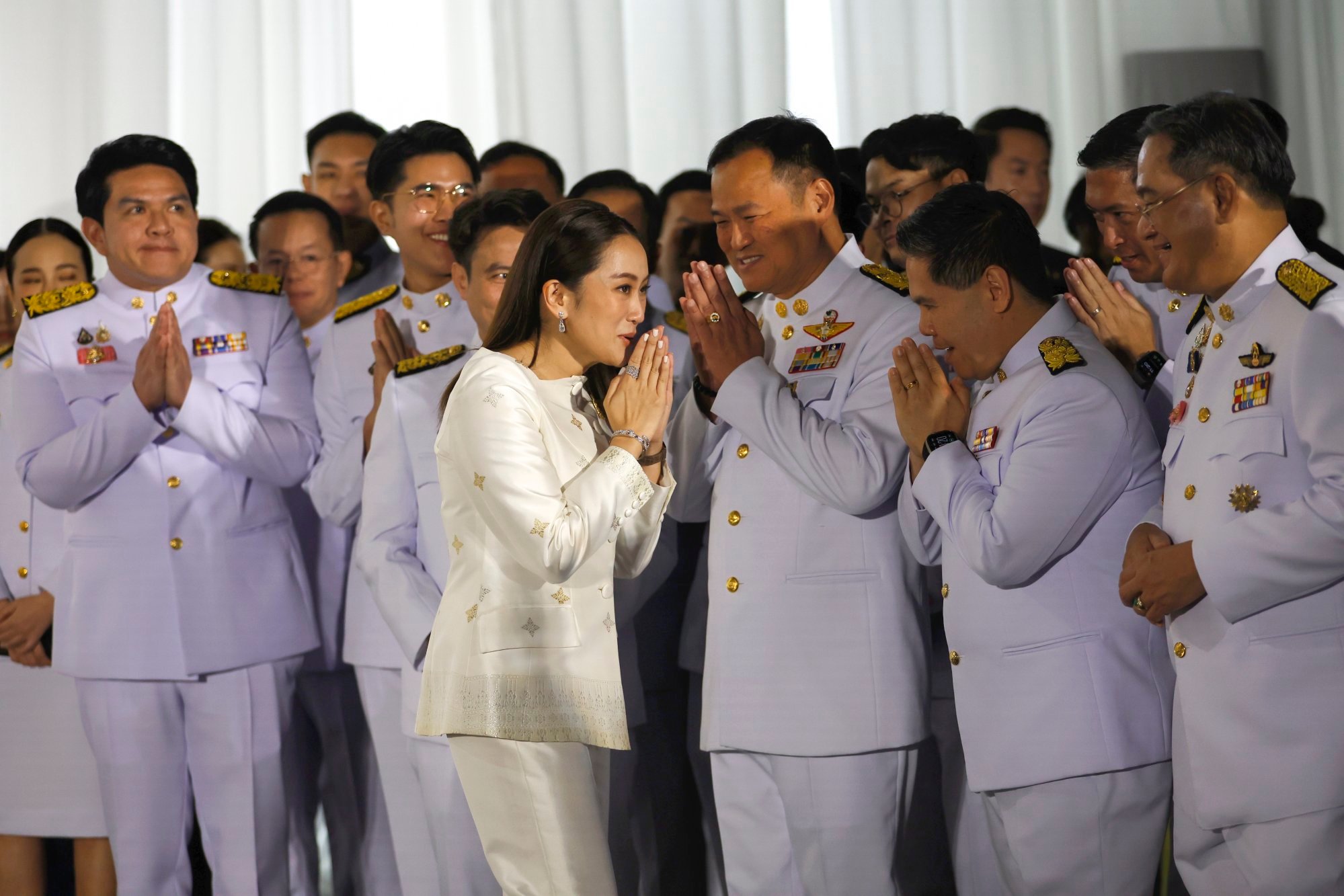PM’s suspension reignites debate on ‘judicial activism’ of Thailand’s courts
Legal scholars warn court’s intervention ‘remains likely in the future’ and electoral mandates risk being curtailed by conservative power centres

The suspension of Prime Minister Paetongtarn Shinawatra has reignited debate over the Constitutional Court’s growing influence in Thailand’s democratic system, amid concerns electoral mandates risk being curtailed by judicial and conservative power centres.
While the court’s decision on Tuesday to suspend Paetongtarn over a leaked phone call with Cambodia’s former leader Hun Sen was framed as a procedural response to an ethics complaint, observers say it fits into a broader trend of interventions that have reshaped Thailand’s political landscape in recent years.
Rawin Leelapatana, assistant professor at Chulalongkorn University’s law faculty, told This Week in Asia that Paetongtarn’s case marked the resurgence of “judicial activism” following the dissolution of the Move Forward Party, which won the most seats in the 2023 election. It was dissolved by the Constitutional Court in 2024 over its push to reform Thailand’s royal defamation law.
“The intervention of the Constitutional Court in … politics remains likely in the future,” he said.
The court has not yet ruled on whether Paetongtarn violated ethical standards, but accepted a petition from 36 senators who allege she brought disrepute to the office by referring to Hun Sen as “uncle” and criticising a top Thai military commander – during a June 15 phone call that was leaked to the public.
Paetongtarn has apologised for the remarks, which she characterised as a diplomatic gesture during a call aimed at easing border tensions. But the fallout has weakened her coalition, with the influential Bhumjaithai party withdrawing from the alliance and raising the prospect of a no-confidence motion in parliament.
The controversy has revived scrutiny of what some analysts describe as a pattern of institutional “pushback” – one that tends to emerge when elected leaders with strong public mandates appear to disrupt the status quo.
“These patterns suggest that the survival of electoral politics in Thailand is contingent on the toleration of the conservative-unelected alliance,” Rawin said, adding that all three Shinawatra prime ministers’ terms appeared to have ended “prematurely”.
Paetongtarn is the third Shinawatra to serve as prime minister, following her father Thaksin and her aunt Yingluck, both of whom were ousted from office after confrontations with the courts and military.

Thaksin, accused of corruption and conflicts of interest, dissolved parliament and called an election in 2006 that was later invalidated by the Constitutional Court. A military coup followed shortly after. In 2014, the same court ordered Yingluck to step down for improperly transferring her national security chief.
“All three share the allegation of personal corruption or fault in the conduct of their respective governments,” said William J Jones, assistant professor of international relations at Mahidol University International College in Thailand.
Still, Jones said Thai politics was “durable to a certain extent” when conservative forces were in full control, as seen during the tenure of Prayuth Chan-ocha.
The former army officer took power in a coup and served as prime minister from 2014 to 2023. His relatively long tenure, Jones said, could be attributed to the use of force.
However, change was unlikely to be on the horizon, despite ongoing calls for the court’s reform.
“There will be major resistance to any formal and meaningful change,” Jones said.
With the conservatives having shown that they would “use any and all mechanisms to prevent challenges to their power”, Jones said “there is no evidence suggesting this will change”.

Jones also pointed to Bhumjaithai’s close relationship to “the core conservative establishment”.
After the party – which has 69 lawmakers in the 495-member House of Representatives – exited last month, Paetongtarn is left with a wobbly coalition.
Mark Cogan, associate professor of peace and conflict studies at Japan’s Kansai Gaidai University, said there was “little doubt” that Paetongtarn would survive the court’s position, given the country’s consistency “in ending governments through questionable means”.
The 2017 constitution, he said, was designed largely in private by military and palace elites for the purposes of limiting the power of political parties to escape the control of the Thai conservative establishment.
“Paetongtarn will fall because there are no checks or balances to the court’s monopoly, as the judiciary has complete authority, while the other independent institutions have been weakened or compromised by politics,” Cogan said.

Pointing to the inconsistencies in the court’s decision, Cogan said the same court had rejected a petition last year alleging that Thaksin exerted tremendous influence over his daughter and attempted to overthrow the Thai monarchy.
The petition also claimed Thaksin was helping Cambodia use gas and other resources in a disputed maritime area.
“If the court is ruling that Paetongtarn erred in her leaked conversation because it was damaging to Thailand’s national interests, why then was the petition against Thaksin so easily dismissed,” Cogan asked.
The two cases showed how easy it was to petition the court, described by Cogan as an effective form of “lawfare” to “undermine democratic or semi-democratic governments”.
Cogan said there would be little support for the court’s reform, as the move would almost certainly be seen as a step towards monarchical reform as well.
“The institution has been a vanguard in protecting the interests of the palace, and any attempt to curtail that ability will likely be met with swift, adverse consequences,” he added.